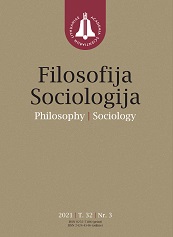Knowability Without Rigidity
Knowability Without Rigidity
Author(s): Evgeny BorisovSubject(s): Epistemology, Contemporary Philosophy, Analytic Philosophy
Published by: Lietuvos mokslų akademijos leidykla
Keywords: knowledge; knowability; the Church–Fitch paradox; proposition; state of affairs;
Summary/Abstract: The most straightforward interpretation of the principle of knowability is that every true proposition may be known. This, taken together with some intuitively appealing ideas, raises a problem known as the Church–Fitch paradox. There is a wide variety of alternative interpretations of the principle of knowability that have been offered to avoid the paradox. Some of them are based on rigidification of certain aspects of what is knowable. I examine three proposals representing this strategy, those by Edgington, Rückert and Jenkins. Edgington defines what is knowable as a proposition prefixed by the actuality operator. Rückert and Jenkins maintain that what makes a proposition knowable is the possibility of knowing de re (Rückert) or recognizing (Jenkins) the state of affairs that renders the proposition actually true. In both cases, the link to the actual world (or situation) rigidifies what is knowable in some aspect or other. I argue that all three theories have strongly counterintuitive consequences, and I offer an interpretation of the principle of knowability that is both free from rigidity and immune to the Church–Fitch argument.
Journal: Filosofija. Sociologija
- Issue Year: 32/2021
- Issue No: 3
- Page Range: 194-202
- Page Count: 9
- Language: English

